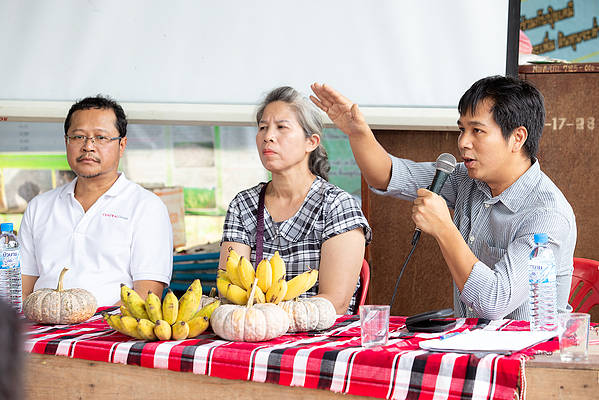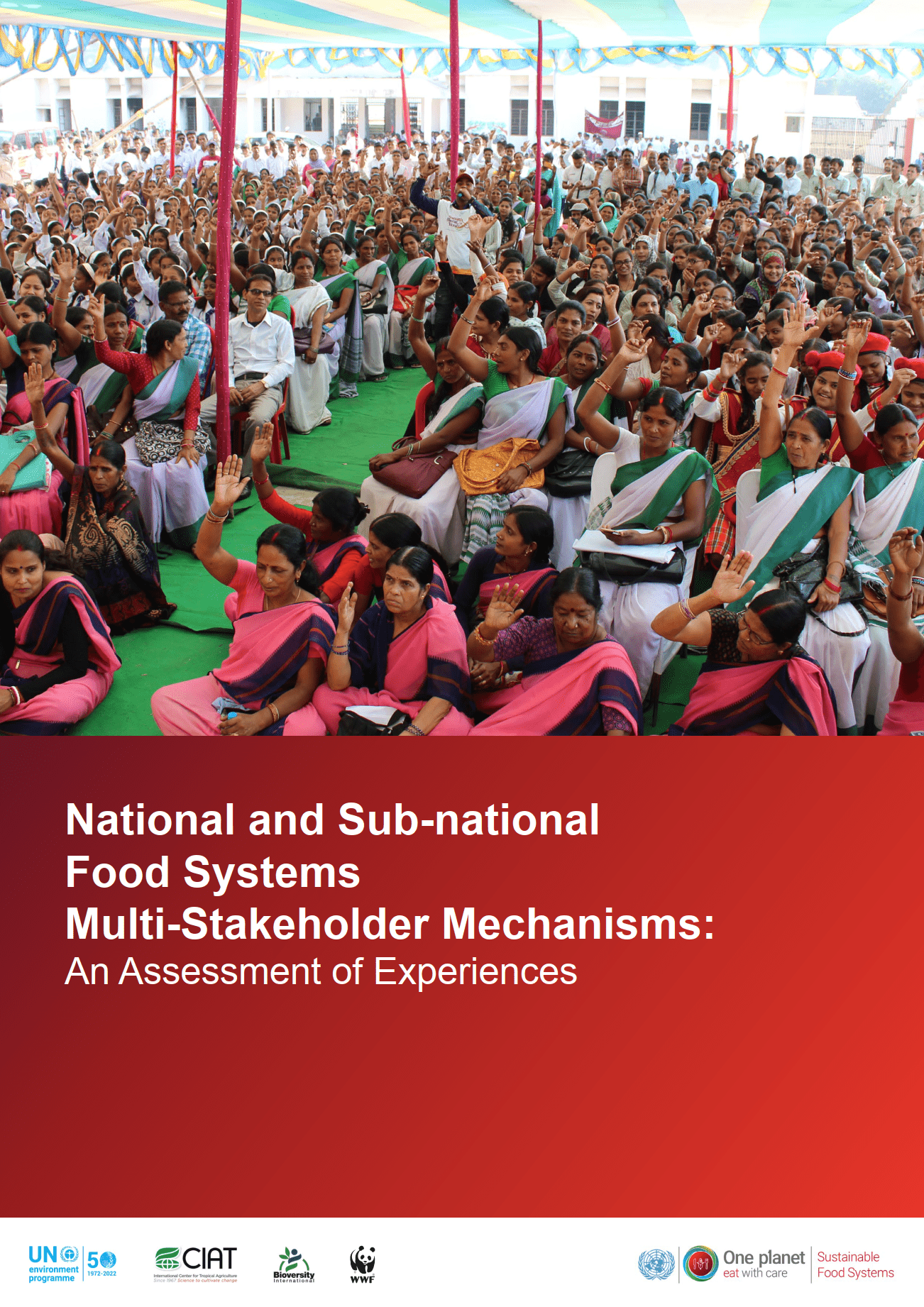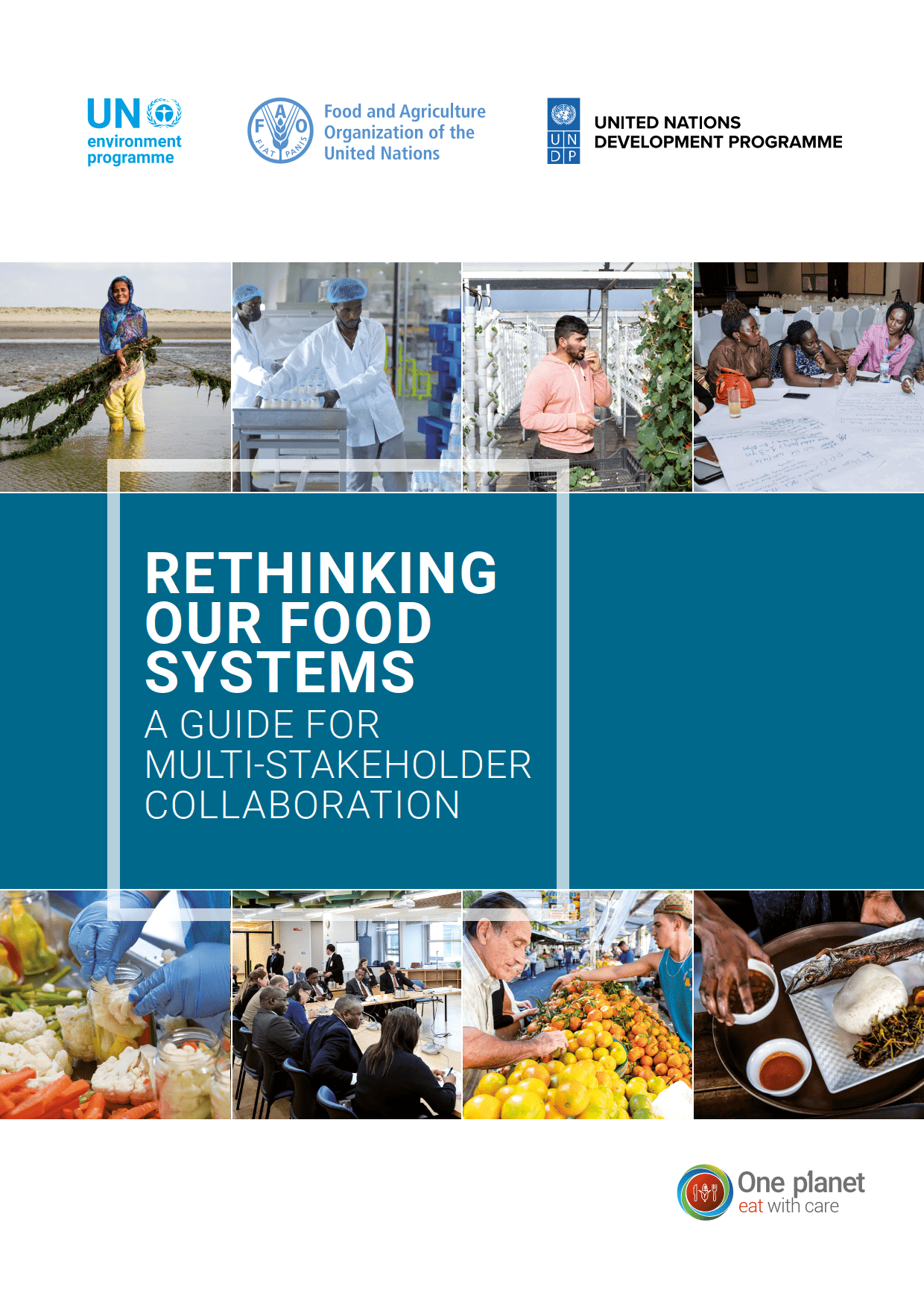Inclusive Multi-stakeholder Mechanisms
As part of Future Food Together, a study on multi-stakeholder mechanisms for food system transformation was published in collaboration with other organizations. The joint research initiative looks at how food systems can benefit from innovative governance systems to contribute to achieving the SGDs with urgency.
Rethinking food governance
We often hear that the solutions to the interconnected problems of hunger and malnutrition, the climate crisis, dramatic declines in biodiversity, inequality, and inequitable livelihoods already exist. And that it is only a matter of political will to enable and implement them. Although policymakers have increasingly recognized the centrality of food systems to these interconnected challenges, the necessary actions have not been initiated with the necessary urgency. This may be because food systems issues and solutions are highly context-specific.
In the last two-three years, however, an important milestone has been reached. A growing consensus has emerged that the world needs to adopt a so-called “food systems approach” to food policy. Using a more holistic lens that can help drive more integrated food policies. The obvious question is how to apply this “food systems approach.” The answer is also a broad consensus: one cannot address these now recognized, interconnected issues with the same institutions and governance arrangements that have prevailed in the past. A rethinking of food systems governance (the institutional and legal framework that oversees our food systems) is needed.

© WWF Thailand
How does a focus on governance innovation help achieve sustainable food systems?
The good news is that, given the urgency and scale that is needed, there is plenty of thinking about what new governance arrangements could and should look like. Even better, a whole host of implementation experiences have been around for some time (see the recent issue of RUAF magazine or the Johns Hopkins Food Policy Networks), and new ones are mushrooming all over the place (e.g., a new federal food policy was adopted in Canada in 2019 that establishes a multi-stakeholder council).
Perhaps you haven’t heard of them? Why not? Because there is still a huge knowledge gap. Our research initiative is designed to help slowly close that gap. The research initiative examined 10 cases of “food systems multi stakeholder mechanisms,” defined as formal or informal participatory governance mechanisms that bring together diverse food systems stakeholders from all stages of the supply chain and connect actors from different food agendas.
© UNEP. UNEP and partners have come together under the umbrella of the One Planet Network’s Sustainable Food Systems Programme to analyse the extent to which national and sub-national Food Systems Multi-Stakeholder Governance Mechanisms (MSMs) are contributing to the transition toward sustainable food systems.
Report “National and Sub-National Food Systems Multi-Stakeholder Mechanisms: An Assessment of Experiences”
The first study titled “National and Sub-National Food Systems Multi-Stakeholder Mechanisms: An Assessment of Experiences” from this program examines national and sub-national MSMs to understand their structure, operation, participants, what works and what doesn’t, and how they are contributing in the transition to sustainable food systems. On the report website, you can find pages dedicated to the 3 national as well as the 7 sub-national cases, and to the key findings.
2021_WWF One Planet Report_Full Report
Learn what kind of governance innovations can support in implementing food systems transformation with a more inclusive, holistic, and trans-disciplinary approach by watching the report’s launch webinar.
© One Planet Network
Guide “Rethinking Our Food Systems: A Guide for Multi-Stakeholder Collaboration”
Under the umbrella of the SFS Programme, UNEP, FAO and UNDP developed “Rethinking Our Food Systems: A Guide for Multi-Stakeholder Collaboration”. This Guide has been developed for individuals, teams and organizations tasked with convening and facilitating multi-stakeholder processes for the transformation towards sustainable food systems. It delves into a set of five key interdependent “building blocks” required to achieve successful collaboration, and it provides a range of free tools.


